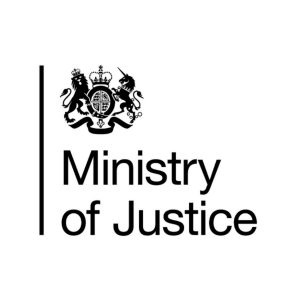 Politicians don’t talk enough about love. After all, it’s people’s close relationships – the national web of love and dependence – that makes our society strong. Where those relationships are weak, we are weak. Where there is a lack of love there is a lot of trouble.
Politicians don’t talk enough about love. After all, it’s people’s close relationships – the national web of love and dependence – that makes our society strong. Where those relationships are weak, we are weak. Where there is a lack of love there is a lot of trouble.
Think of yourself without your loved ones. Think of your loved ones without you. Babies suffering neglect – with all the impact that brings on the development of the brain, on their emotions and cognitive processes; children lacking guidance and encouragement and boundaries; adolescents and young adults rootless – liberated into a solipsistic hedonism that seems like maturity but leaves them empty; parents struggling alone or in pairs to bring up kids in a little nuclear unit that can’t possibly manage on its own, but somehow has to; and older people – the rightful heirs of all that family should mean, of all the love and support and honour that the elderly deserve – left alone for days and weeks, lonely, abandoned.
Not all – not even most – people in Britain live like that. But the fact is that for many families, this sad list is our society. The point is, these problems aren’t a failure of public services or even the economy – though both these play their part. They are a failure of relationships.
“It’s people’s close relationships – the national web of love and dependence – that makes our society strong.”
We need to stop making policy as if grandparents, mothers, fathers and children exist in separate silos and not as part of a whole family. Throughout our lives we are dependent upon others for our wellbeing and sense of identity. Relationships give meaning to our lives. They bind us all together into society and give us our sense of belonging. We are literally nothing without them.
We need to use the power of relationships to help strengthen the capacity of men, women and children for love, care and resilience. We need government that helps create the conditions for families and people’s relationships to thrive. Not passing judgment nor micro-managing but supporting people to help themselves. Working with people, not doing things to and for them.
Relationships – love – goes wider than the family. William Morris meant the ordinary love of our family but also a broader understanding – love is the duty we have to others and the sense of self we get by living with and for other people. People need to live in communities of value and meaning and reciprocity.
Institutions – formal and informal – are the contexts of our freedom, the secure foundation for the diversity and innovation that modern life offers us. Some institutions become oppressive – especially if they are vehicles for state or corporate power.
“Love is the duty we have to others and the sense of self we get by living with and for other people.”
But one of the great things about Britain is the extraordinary range of institutions we have created – and are creating all the time – to give individuals a sense of belonging, and to give structure to our society. This can include institutions that act as a surrogate family, supporting individuals – children, or vulnerable adults or older people especially – who don’t live in their own family. In the past these kinds of institutions run by the state were devoid of love and relationships, and were pitifully impoverished. There is a terrible sadness about those we abandoned in them, and the lives they lived.
We need to shift the focus of public services from crisis intervention with troubled children and families to building their capacity for relationships to break cycles of deprivation. Frank Field has been championing this approach for years. And Jon Collins and Nottingham Council, together with local MP Graham Allen have been pioneering early intervention.
Labour is at its best when it is pioneering a reform movement, creating models of mutual self-help that give people dignity, power and control over their lives; whether they be residents in a care home, young people in care, or mothers and fathers using a children’s centre.
Relationships thrive when we have time. We need time to be with family and friends, and time to pursue our enjoyment and interests. But time is the scarce commodity of modern capitalism. People either have too much time with no work, no money and nothing to do, or they have too much work and no time for anything else. It was this lack of time to be with family that started the campaign for a Living Wage. Time is the connection between love and work.
Read Jon Cruddas’ essay in full by downloading our new collection: what’s love got to do with it? 14 ideas for putting relationships at the heart of policy.
Find out more
- Find out why we’re releasing the essays.
- View our other publications on public policy, research and good practice.
- Find out more about relationships and society by reading our Policy Blog.






